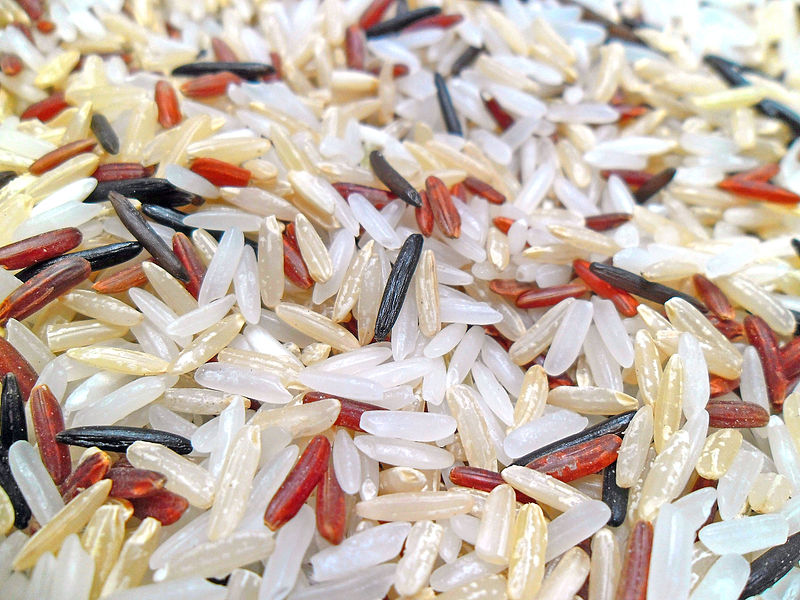High Levels of Lead Found in Imported Rice
Posted by Dave Leong on Dec 1st 2013
High Levels of Lead Found in Imported Rice
This year, the focus of the American Chemical Society's annual meeting was on the chemistry of energy and food. Fittingly enough, the meeting was held in one of the culinary capitals of the country: New Orleans. At the meeting, one group of researchers announced the results of their disturbing report on the levels of lead in rice from Asia, Europe and South America, where Americans get 7% of all their rice. Lead exposure can cause a whole number of dangerous problems, especially for children, but for adults as well.
Photo courtesy of Wikimedia Commons.
According to the report:
The levels ranged from six milligrams/kilogram to 12 milligrams/kilogram; factoring in average consumption, that added up to estimated lead exposure levels 30 to 60 times greater than the Food and Drug Administration's (FDA) provisional total tolerable intake (PTTI) levels for children and 20-40 times greater than the standard exposure levels for adults.
And:
Because Asian populations in the U.S. tend to consume the most rice, the researchers also calculated exposure levels for these groups, and estimated that Asian infants and children in the U.S. could be exposed to lead at 60 to 120 times higher than the FDA's PTTI. And young children under six years old can be especially vulnerable to lead poisoning, which can impair mental and physical development and, if the exposure is sustained, can be fatal…
While lead exposure can negatively affect cognitive development and performance in kids, adults with high lead exposure can also experience problems with blood pressure, heart disease and calcium deficiency.
Click here for the full article
[Top]

 Get Well Natural, LLC
Get Well Natural, LLC  Kidney Function & Regeneration Health
Kidney Function & Regeneration Health  Platelet & Blood Cell Health
Platelet & Blood Cell Health  Prostate, Flow & Function Health
Prostate, Flow & Function Health  General Mind & Body Health
General Mind & Body Health  Heart, Cholesterol & Cardio Health
Heart, Cholesterol & Cardio Health  Allergy-Free Body
Allergy-Free Body  Anxiety & Stress
Anxiety & Stress  Blood Platelet Counts & Function
Blood Platelet Counts & Function  Blood Pressure Health
Blood Pressure Health  Kidney Function Health
Kidney Function Health  Immune System Health & Balance
Immune System Health & Balance  Prostate & Urinary Health Function
Prostate & Urinary Health Function  Blood Sugar Balance
Blood Sugar Balance  Cardiovascular Heart Health
Cardiovascular Heart Health  Detoxification & Healthy Cells
Detoxification & Healthy Cells  Women's Health
Women's Health  Liver Regeneration
Liver Regeneration  Pain-Free Body
Pain-Free Body  Water & Air Filtration
Water & Air Filtration 




